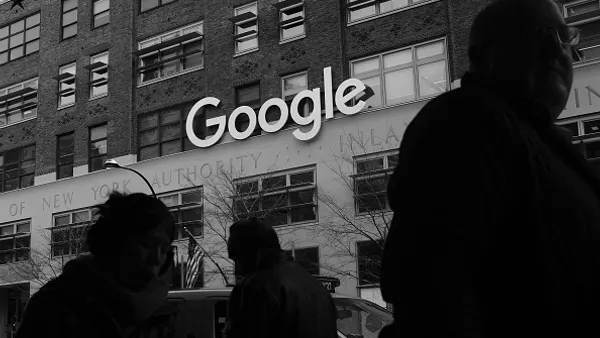Brief:
-
BMW bought Parkmobile LLC, an app with 22 million users that helps North American drivers find and pay for parking spots, and make reservations for garage parking, per a statement. The deal is part of the German carmaker’s focus on the future of mobility and technology investments, making it the largest international provider of digital parking solutions, the company said .
-
Parkmobile’s service is open to all drivers, not just BMW owners. BMW cited research that shows as much as 30% of city traffic is caused by people driving around, looking for parking. By assisting drivers with parking, the company seeks to cut down on traffic and pollution in urban areas.
-
Parkmobile works in more than 1,000 cities in North America and Europe. Terms of the agreement weren’t disclosed, but BMW held a minority stake in the Atlanta-based company and already owned Parkmobile’s European operation.
Insight:
As consumer become accustomed to using mobile to reserve a car, they may also find added convenience from being able to reserve a parking spot before arriving at their destination, making BMW's Parkmobile acquisition one of several ways the automaker is boosting its mobile offerings. Mobile-based parking services are also likely to become more important as self-driving vehicles hit the roads in bigger numbers.
Carmakers like BMW are seeking a broad role in addressing people’s needs for transportation while addressing concerns about traffic, driver safety, air pollution and climate change. Driver habits are changing, at least in the U.S., where millennials are more likely to seek alternatives to owning a car, including the use of car-sharing services like Avis’s Zipcar or ride-hailing apps like Lyft and Uber. In addition, the growth of delivery services like Postmates or Instacart offer another reason to avoid buying a car.
BMW has been busily exploring ways to leverage mobile to engage with luxury carowners. A deal with Amazon will put its Alexa digital assistant in BMW and Mini vehicles this year. The automaker also brought its AR showroom app to the iPhone for the first time late last year. BMW is even experimenting with mobile AR ads on Snapchat.
Intel last year forecast that the worldwide "passenger economy" will grow from $800 billion in 2023 to $7 trillion by 2050 as autonomous vehicles become more popular worldwide. "Mobility as a Service," (Maas) which lets people order door-to-door transportation or services, will become the business model for many car companies as consumers get more acquainted with the concept.
The idea of “car-venience” means that consumers will use their mobile devices and to order vehicles that are equipped to bring services to customers, including beauty salons, shops, fast-casual dining and healthcare services, Intel said. Toyota last week showed off its idea for future transportation with the introduction of its “e-Pallette” concept car that consists of self-driving, electric vehicles that can be equipped for a variety of services, such as delivery, retail or ride-sharing. The Japanese carmaker plans to test the vehicle at the 2020 Olympic Games in Tokyo.













